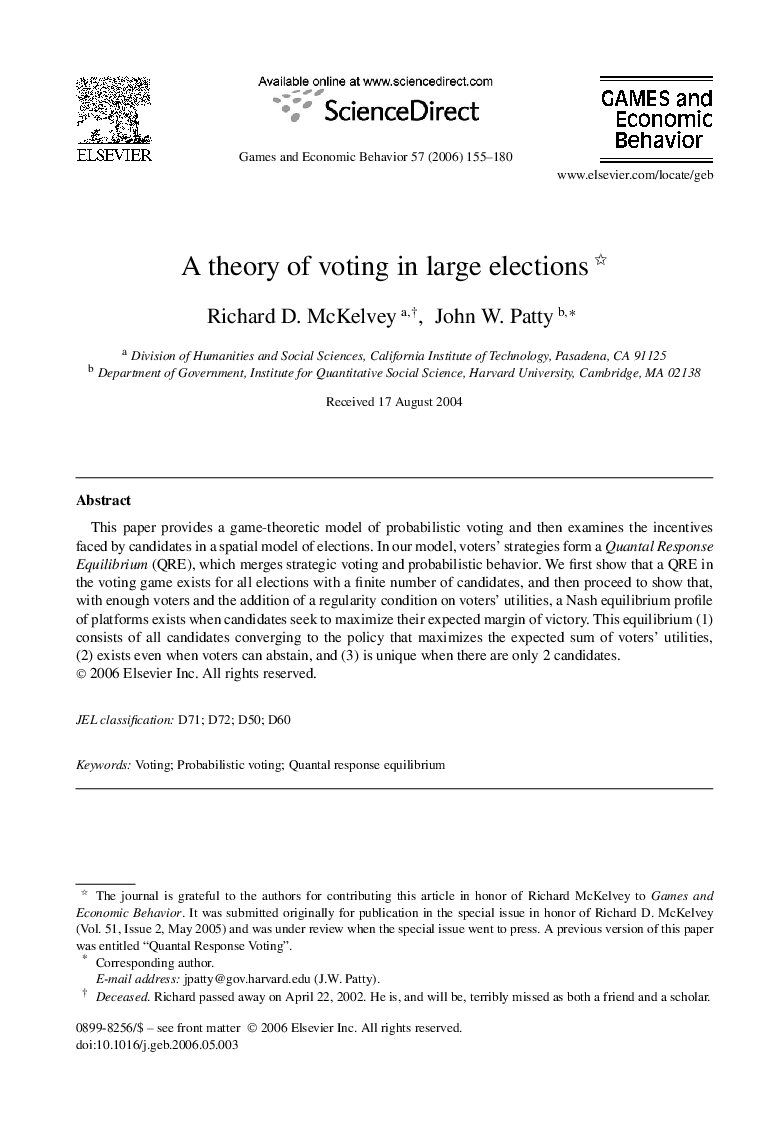| Article ID | Journal | Published Year | Pages | File Type |
|---|---|---|---|---|
| 5073063 | Games and Economic Behavior | 2006 | 26 Pages |
This paper provides a game-theoretic model of probabilistic voting and then examines the incentives faced by candidates in a spatial model of elections. In our model, voters' strategies form a Quantal Response Equilibrium (QRE), which merges strategic voting and probabilistic behavior. We first show that a QRE in the voting game exists for all elections with a finite number of candidates, and then proceed to show that, with enough voters and the addition of a regularity condition on voters' utilities, a Nash equilibrium profile of platforms exists when candidates seek to maximize their expected margin of victory. This equilibrium (1) consists of all candidates converging to the policy that maximizes the expected sum of voters' utilities, (2) exists even when voters can abstain, and (3) is unique when there are only 2 candidates.
